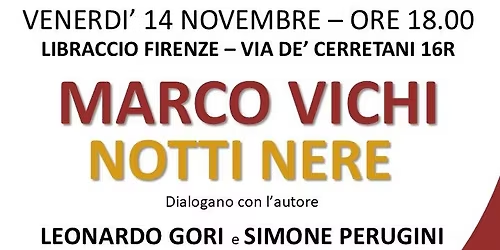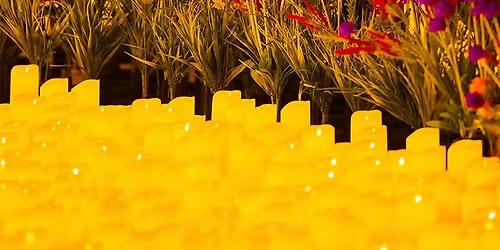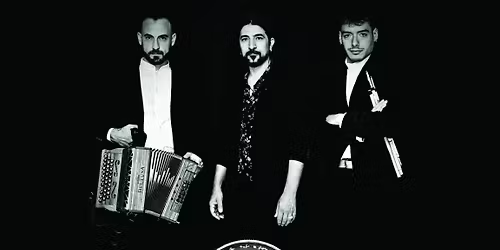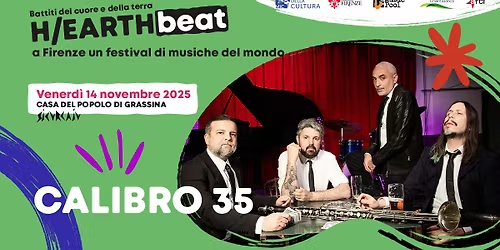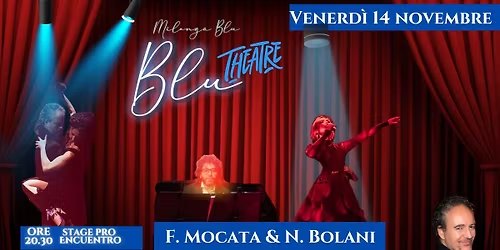
Advertisement
Everything is about technology, only technology is about emotions.Coded-ness is a material quality, a trace of a process already past. It is also a process that is not only meant to embed technologies in things, but emotions, memories, and imaginaries. That means that treating code, coded or coded-ness as merely technologically defined falls short in an attempt to adequately analyze its emergence, its processes, or its effects.
In times where the developments of artificial intelligence are outmoded faster than they can be described, and where algorithms are interwoven with daily life at every turn, the question of whether “technology” is still the right term is a core concern of this symposium. Therefore, this call poses an ontological schism: modern technology critique, we argue, cannot address code in our present and future. Whether the cyborg-critique of Donna Haraway or technology critiques of modern thinkers since 1850, they all no longer hold when what “coded” means increasingly is inseparable from “crafted” for human senses and minds. One can, equally, no longer speak of the disenchantment—or re-enchantment—of the technological since their mutual entanglement is so total that there is no longer room for a Blochian critique of one toward the other. At the same time, art historical categories such as “semblance” and “likeness” gain new relevance when work created by humans, neural networks, or both is indistinguishable from one another. Asked differently, when the goalposts are constantly and desperately being moved to preserve what is “human,” the stakes in making such distinctions shift, as well.
How then can one meaningfully engage with questions of code in art or architecture history, with algorithmic customizations or large language models when one cannot distinguish their art, their output, and their coded-ness with human faculties? What if probed disciplinary methods are no longer sufficient for this technology? This symposium consequently looks elsewhere: it looks for insights from the history of emotions, for empathy as core quality of technology, for sensorial feedback or nostalgic projections, for expanded readings in disability studies or for alternative histories of architecture, art, technologies, or their objects. Whose needs for comfort and which desires does code (potentially no longer as technology) answer? Which does it create? What need for communication, what wish for permanence, what desire for transparency is motivating the coding efforts of each time or question? Embracing the awareness raised in the field of archaeology that the long-standing separation of matter (often “dirt”) from “artefacts” has long led to irreversible destruction of information begs the question whether a potential de-coding of objects in the future might hold more promise than unearthing them in their present illegibility.
As follow up to the symposium on objects and their emergence by the Lise Meitner Group “Coded Objects” in October 2024, this iteration turns to the motivations that will coded-ness into material existence: We hope to discover moments of euphoria and friction, of resistance and reinterpretation, and moving forward positively and critically—together, as humans.
Program
Wednesday, 12 November
9:30 – 10:00am – Introduction
Anna-Maria Meister, KHI and Karlsruhe Institute of Technology
10:00am – 1:00pm
1: Recoding Narratives
Chair: Anna Luise Schubert, KHI
Ludo Groen, ETH Zurich
Codes of Swiss Banking Secrecy and the Automation of the Female Telephone Operator, 1921–34
Michael Faciejew, Dalhousie University
Wirelessness and Colonial Affectivity
Ana Miljacki, MIT
Affective History: The Pilgrimage / Pionirsko Hodočašće
Coffee Break
12:00pm – Response: Enrique Ramirez, Columbia University
& Discussion
Lunch Break
2:00 – 5:00pm
2: Close Bodily Encounters
Chair: Julia Tarling, KHI
Oliver Arellano-Padilla, University of Massachusetts Amherst
Haunted Interfaces: Codedness and the Threshold of the Synthetic Voice
Christopher Williams-Wynn, Freie Universität Berlin
Bodies of Code, Affects of Execution
Heewon Kim, Korea Advanced Institute of Science and Technology
The Coded Face: From the Facial Science to Behavioral Screening Programs
Coffee Break
4:00pm – Response: Virginia Marano, MASI Lugano and KHI
& Discussion
Break
5:30 – 7:30pm
3: Multivalent Constructs
Chair: Eva Schreiner, KHI
Evangelos Kotsioris, MoMA New York
Encapsulating Affect: Cultural Coded-ness in Kisho Kurokawa’s Nakagin Capsule Tower
Theodora Vardouli, McGill University Montréal
Coded Ambivalence
Coffee Break
6:30pm – Response: Laurent Stalder, ETH Zurich
& Discussion
Thursday, 13 November
9:30 – 12:30pm
4: Charged Matter
Chair: Alejandro Nodarse, KHI and Harvard University
Ruth Hung, Hong Kong Baptist University
Cuteness as Code: LABUBU and the Emotional Machinery of Digital Capitalism
Ellen Reeve, Independent scholar
Encoded Longings: Orphan Artifacts, Bureaucratic Code, and the Sensory Reclamation of Identity
Nachiket Chanchani, University of Michigan
Coded Cups: Agents of Anticolonial Struggles
Coffee Break
11:30am – Response: Karina Pawlow, KHI
& Discussion
Lunch Break
1:30 – 4:30pm
5: Feeling Landscapes
Chair: Anna-Maria Meister, KHI and Karlsruhe Institute of Technology
Azar Emami Pari, TU Berlin and KHI
Coded by Cut: Fragmented Carpets and the Tactile Illegibility of Devotion
Samuel Stewart-Halevy, Pratt Institute
The Mechanics of Vibing
Mo Zhang, University of Pennsylvania
Push Out the Awning: Coded Perception and Emotional Topographies in Tuipeng Painting of Early Modern China
Coffee Break
3:30pm – Response: Mimi Cheng, KHI
& Discussion
Break
5:00 – 8:00pm
6: Visceral Technologies
Chair: Alessandra Failla, KHI
Inge Hinterwaldner, Karlsruhe Institute of Technology
Net Art Strikes Back! Where Digital Design Gets Your Guts
Hansun Hsiung, Durham University
Mental Illness and Machine Punishment in Late Modernity
Thomas Moser, TU Wien
Cadillac Kinship: Affective Machines and Cinematic Reproduction in Julia Ducournau’s "Titane"
Coffee Break
7:00pm – Response: Maryia Rusak, Karlsruhe Institute of Technology
& Discussion
Friday, 14 November
9:30 – 11:00am
7: On-Site Presentation, Accademia di Belle Arti (Via Ricasoli, 66)
Robert Zamboni & Sara Onofrietti, Accademia di Belle Arti di Firenze, in collaboration with the Academy staff
From Plaster to Data. Gypsum Casts as Coded Objects (A Possible Research Trajectory)
Meeting point: Under the portico at the entrance, just after the first gate, 9:15am
11:30am – 12:30pm
Tour of the Exhibition Armin Linke: The City as Archive. Florence
with curators Hannah Baader & Costanza Caraffa, KHI
Meeting point: First floor of Palazzo Grifoni
Individual Lunch Break
1:30 – 4:30pm
8: Deviations, Rerouting, Failures, Breaking Codes
Chair: Joshua Silver, Karlsruhe Institute of Technology
Cansu Curgen & Avşar Gürpınar, Loughborough University
Ambiguous Standards Institute: The Agency of Everyday Objects
Farzin Lotfi-Jam, Cornell University
Coded Humans: The Institute for Creative Technologies and Sada for Contemporary Iraqi Art
Joseph Henry, CUNY Graduate Center
The Glitch Aesthetic of 1907
Coffee Break
3:30pm – Response: Rafael Brundo Uriarte, KHI
& Discussion
4:30pm – Closing Remarks
This Symposium is organized by the Lise Meitner Group “Coded Objects” led by Anna-Maria Meister at the Kunsthistorisches Institut in Florenz – Max-Planck-Institut. "Coded Objects" as method of refraction questions any assumptions of "neutral" technology or immaterial bureaucracy. Instead, the Lise Meitner Group examines how processes form values through objects—and how objects inform processes in societies.
The building can be entered about half an hour before the event. Ring the bell at “Photothek” if the door is not open yet. The event space is located on the first floor, reachable with 3 steps of stairs at the entrance and a large stairway or elevator (with limitations for wheelchair users). The location can be accessed with a wheelchair via an alternative entrance from Piazza della Santissima Annunziata, but advance request is necessary. During the presentations, automated captioning through Zoom will be available. If you have any access needs, e.g. verbal descriptions or alternative seating, please let us know in advance via [email protected], and we will try to accommodate those.
Organized by Anna-Maria Meister, Anna Luise Schubert and the Lise Meitner Group “Coded Objects”.
This will be a hybrid event.
VENUE
Palazzo Grifoni Budini Gattai
Via dei Servi 51
50122 Firenze, Italia
To participate online please register in advance via Zoom:
https://eu02web.zoom.us/meeting/register/iYZaOPN5T8ejDuufUnByIQ#/registration
--
Kunsthistorisches Institut in Florenz – Max-Planck-Institut
Via Giuseppe Giusti 44
50121 Firenze, Italia
+39 055 24911-1
[email protected]
www.khi.fi.it
khi.fi.it/newsletter
instagram.com/khiflorenz
facebook.com/khiflorenz
bsky.app/khiflorenz.bsky.social
Advertisement
Event Venue & Nearby Stays
Palazzo Grifoni Budini Gattai, Via dei servi 51,Florence, Italy
Tickets
Concerts, fests, parties, meetups - all the happenings, one place.
